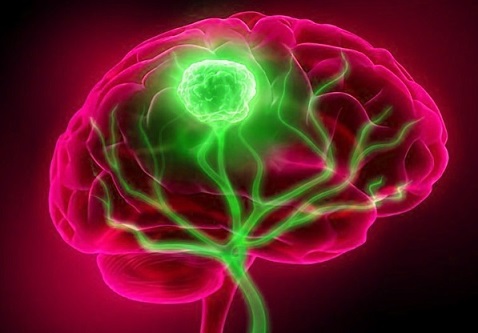Nikhil Prasad Fact checked by:Thailand Medical News Team Feb 11, 2025 2 months, 1 day, 22 hours, 34 minutes ago
Medical News: Gliomas are among the most common malignant brain tumors, originating from glial cells in the brain. These tumors vary in severity, with some classified as low-grade and others, such as glioblastomas, being highly aggressive and difficult to treat. Despite advances in medical science, high-grade gliomas remain challenging due to their invasive nature and resistance to conventional treatments. Scientists are continuously exploring new therapeutic options to combat these tumors more effectively.
 Plant Lectins Show Promise for Treating Brain Cancer
Plant Lectins Show Promise for Treating Brain Cancer
A recent study conducted by researchers from the Federal University of Santa Catarina and the Federal University of Ceara in Brazil has revealed promising findings on the use of plant lectins in glioma treatment. This
Medical News report explores how these natural proteins could revolutionize the fight against brain cancer.
What Are Plant Lectins and How Do They Work
Lectins are proteins found in plants that bind specifically to carbohydrates on cell surfaces. Over the years, they have been studied for their potential in diagnosing and treating various diseases, including cancer. The new study suggests that plant lectins, particularly those derived from legumes, exhibit strong antiglioma activity by targeting tumor cells and interfering with their growth and survival.
The research identified several mechanisms through which plant lectins impact glioma cells. They were found to reduce cell viability, slow tumor migration, and induce programmed cell death through autophagy and apoptosis. This means that lectins can push glioma cells to self-destruct, potentially stopping tumor progression.
Key Findings of the Study
The study tested multiple lectins on glioma cell lines, including human-derived U87 and SF-295 cells, as well as the widely used rat glioma model C6. The results showed that at concentrations ranging from 30 to 100 micrograms per milliliter, lectins effectively killed cancer cells while limiting their ability to spread.
Specific lectins investigated in the study include:
-Abelmoschus esculentus lectin (AEL) from okra, which induced apoptosis in U87 cells by modulating caspase-3 and -7 expression while generating intracellular reactive oxygen species (ROS).
-Canavalia bonariensis lectin (CaBo) from Canavalia bonariensis, which targets glucose and mannose, reducing cellular viability and migration in C6 glioma cells by inducing autophagy and cell death.
-Canavalia brasiliensis lectin (ConBr) from Canavalia brasiliensis, which suppressed key survival pathways in glioma cells, including mTORC1 phosphorylation, and increased autophagic activity.
-Canavalia ensiformis lectin (ConA) from Canavalia ensiformis (Jack bean), which demonstrated antiglioma activity by inhibiting Akt phosphorylation and interfering with glioma cell proliferation and migration.
t;-Dioclea violacea lectin (DVL) from Dioclea violacea, which decreased mitochondrial membrane potential and induced apoptotic cell death in glioma cells.
One of the main effects observed was the activation of molecular pathways that promote cell death. Specifically, lectins suppressed Akt and mTORC1 phosphorylation, which are critical for tumor cell survival. At the same time, they activated JNK and p38MAPK pathways, which encourage cancer cells to die.
Additionally, certain lectins interfered with the expression of matrix metalloproteinases (MMPs), enzymes that help cancer cells break through barriers and invade other tissues. By blocking these enzymes, lectins could prevent gliomas from spreading further in the brain.
Future Implications and Next Steps
While the results of this study are promising, researchers emphasize that further investigations are necessary. More preclinical and clinical trials will be needed to understand how plant lectins can be effectively used in humans. Scientists are particularly interested in how these proteins interact with healthy brain cells and how they can be developed into safe, targeted therapies.
Moreover, future studies will need to explore whether lectins can be combined with existing cancer treatments, such as chemotherapy and radiation, to enhance their effectiveness. If successful, plant lectin-based therapies could offer a new, less toxic approach to treating gliomas, improving survival rates and quality of life for patients.
Conclusion
The study provides compelling evidence that plant lectins may serve as potential therapeutic agents against gliomas. By inducing cancer cell death, reducing tumor spread, and interfering with essential survival pathways, these natural compounds offer hope for new treatment strategies. However, more research is needed before they can be used in clinical settings. Scientists remain optimistic that continued exploration of plant lectins will lead to breakthroughs in brain cancer treatment, offering new hope for patients worldwide.
The study findings were published in the peer-reviewed journal: Neuroglia.
https://www.mdpi.com/2571-6980/6/1/5
For the latest on Brain Cancers, keep on logging to Thailand Medical News.
Read Also:
https://www.thailandmedical.news/news/exploring-natural-compounds-derived-from-peruvian-maca-lepidium-meyenii-to-tackle-glioblastoma-multiforme
https://www.thailandmedical.news/news/citrus-peel-oils-as-potential-game-changers-in-brain-cancer-therapy
https://www.thailandmedical.news/news/university-of-mississippi-study-shows-that-juice-of-the-cornelian-cherry-can-help-with-glioblastoma
https://www.thailandmedical.news/news/herbs-and-phytochemicals-bioactive-compounds-from-kiwiberry-found-to-be-useful-in-treating-glioblastoma
